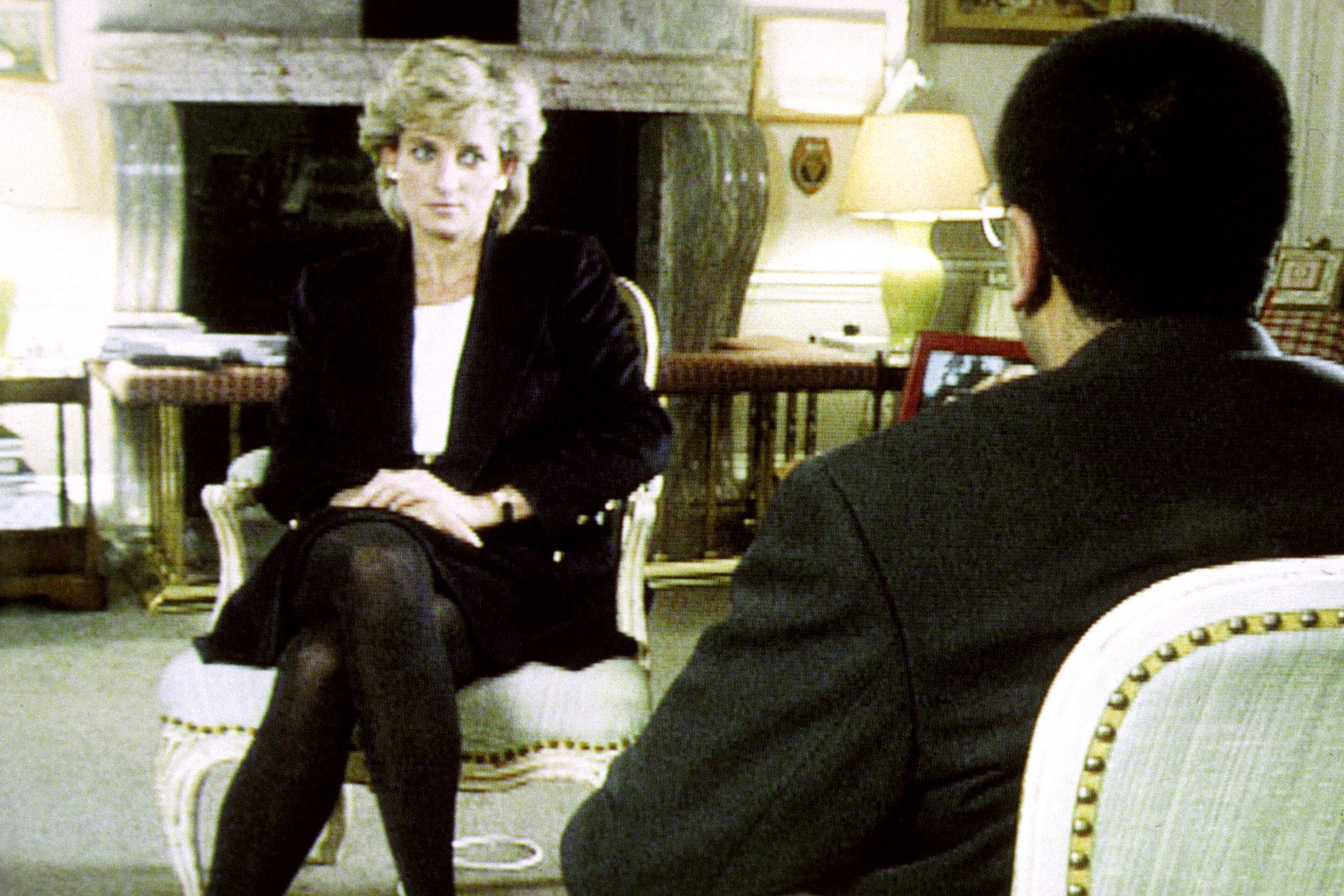The BBC is still trying to cover up the truth about Bashir’s Princess Diana interview
The vast cache of emails about the event that have been released – though heavily redacted – confirm that subterfuge surrounded the Panorama interview from beginning to end, writes Sean O’Grady. It would have been better had it never happened at all...


At this distance, and with what we know now, it is all too painfully obvious that the nation would have been much better off if Diana, Princess of Wales, had not given her notorious Panorama interview to Martin Bashir – and the whole thing had never happened.
The vast cache of emails about the event that have been released – though heavily redacted – confirm that studied and continuous deception surrounded the Bashir interview, from its very inception through to the continued effort at repression of information being undertaken by BBC executives.
Indeed, the heavy censorship applied to the documents, extracted after a long legal battle with the corporation, suggests that the BBC still feels it has much to hide and much to fear about this affair.
Given how it touches upon the lives of the King, the Prince of Wales, the Sussexes, the Spencers and the BBC itself, we probably have not heard the end of this matter. At its heart, and what makes it such a depressing business, is the constant theme of deception.
The infamous exchanges between the princess and Bashir – “there were three of us in that marriage” – were devastating to all concerned, and of benefit to none. That is, with the single (and temporary) case of Bashir himself – who gained for himself a fine harvest of awards, fame and an entirely unjustified reputation as a groundbreaking journalist.
Even now, in the way the breakdown of the marriage of Charles and Diana was played out in public, the reverberations of the Bashir interview are still making their descriptive presence felt in the relationships between Harry, Meghan and the rest of the family.
The reputation of the monarchy, fairly or not, was further devastated – and when the later cover-ups by the BBC were revealed, the BBC suffered reputational damage. Quite right, it was Bashir who was at the centre of the subsequent controversies, just as he was the prime mover of the previous deceptions.
Eventually, the truth about his activities before the interview emerged – forged bank statements that he showed to Diana and purported to show that the palace had her under surveillance. It fed her paranoia and added to her resentment and her determination to get “her side of the story” out. Bashir posed as a sympathetic soul who would allow her to have her say, nothing more, nothing less.
The BBC took extraordinary steps to keep the preparations for the interview secret. The chairman of the BBC, Marmaduke Hussey, whose wife Susan worked for the Queen, was deliberately not informed, as few were. For her part, Diana joined in with the secrecy – the BBC crew used a cover story about them fitting a new hi-fi system in her apartments at Kensington Palace. Bashir’s then-relative obscurity probably helped the subterfuge.
It has to be said that deceptions, “spin” and media manipulation had, by then, become a way of life for Diana and for Charles. The “war of the Waleses” was conducted through a series of unattributable briefings, gossip, personally sourced and approved books (notably Andrew Morton’s Diana – Her True Story published in 1992) – and explosive television interviews.
It seems very clear, for example, that Diana’s 1995 appearance with Bashir was a reaction to Charles’ confessions of adultery in a television film made for ITV by Jonathan Dimbleby in 1994 (with an accompanying book).
It may be that Diana would have unburdened herself to someone else than Bashir, had his approaches to her been unsuccessful, but she might not have been so bitter and pointed in her remarks. At any rate, and partly born out of a long-established habit of confidentiality that infused the monarchy’s previous dealings with the media, it is arguable that deception was also a theme for the Windsors in these difficult years.
It’s maybe also worth reflecting on how it came to be that the tragically unhappy marriage of Charles and Diana became such public property.
Obviously, they were public figures, and the public interest was intense, so the process was inevitable. Yet, objectively, there was never any good reason why the breakdown of their relationship should have been treated as a soap opera, because it was their own private business.
That is a fairly unworldly observation, I admit – but the pain and the damage that one failed marriage inflicted on so many people and two great national institutions was, in the end, caused by the public’s insatiable interest in the personal affairs of the royal family.
If there was no market for such material, there would have been no war of the Wales and no Bashir interview. But that’s no excuse for deception.
Join our commenting forum
Join thought-provoking conversations, follow other Independent readers and see their replies
Comments
Bookmark popover
Removed from bookmarks